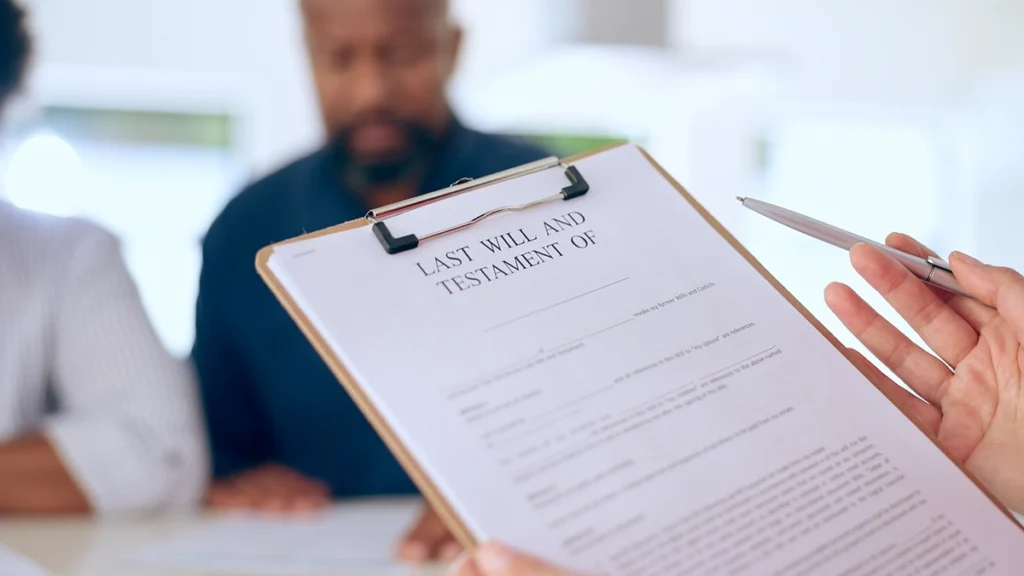It is great that you are taking the step to look for an estate planning service for your home and your family. But before making that decision, have you thought about what questions to ask?
Choosing the right service matters more than most people realize. One mistake can be the difference between your family facing headaches and unexpected costs or finding peace of mind and lasting protection.
The questions you ask today can safeguard your loved ones tomorrow. Here are some of the most important ones to consider before choosing an estate planning service.
1. What Experience Does the Service Have With Local Laws?
Estate planning laws vary widely from state to state. A Lady Bird Deed, for example, is recognized only in Florida, Texas, Michigan, West Virginia, Vermont, and North Carolina. Asking about a service’s knowledge of local rules ensures that the documents you prepare will stand up to legal review.
A national provider may have general expertise, but a team with direct state-level experience can help you avoid delays or errors. For instance, a Florida homeowner in her late 50s may discover that her property transfer options look very different from those available to a family member living in New York.
2. Do They Clearly Explain Probate and How To Avoid It?
Probate is the court process of validating a will and settling an estate. It can take months or even years, often costing thousands in attorney fees and court costs. An experienced estate planning service should be able to explain how different tools, such as Lady Bird Deeds, revocable trusts, and joint ownership, work to bypass probate.
When explained clearly, homeowners gain peace of mind knowing that their loved ones will not be burdened with lengthy court proceedings after their passing.
For example, consider a 70-year-old homeowner preparing for retirement who chose a Lady Bird Deed so she could refinance if needed but still leave her home directly to her son. When she passed away, the property transferred instantly, bypassing probate and easing stress for her family. Examples like this show how clear planning translates into real outcomes, not just legal theory.
3. Will My Wishes Override My Will?
This is a question many homeowners overlook. With property, the deed itself usually controls ownership. A properly executed Lady Bird Deed overrides a will with respect to the designated property. If the deed names a beneficiary, that designation stands even if the will states otherwise.
A good service should explain this hierarchy clearly so families understand how documents interact. Without this clarity, conflicting instructions can create family disputes.
4. How Do They Protect My Flexibility While I Am Alive?
Some people fear losing control of their property once they sign a deed. A standard life estate deed limits flexibility, since the homeowner cannot easily sell or refinance without the consent of the beneficiary. A Lady Bird Deed solves this problem by keeping control in the homeowner’s hands.
You can sell, mortgage, or change beneficiaries without approval. Services should explain these differences so clients know exactly what rights they retain while living.
One 62-year-old Florida couple, for example, decided on a Lady Bird Deed because it let them keep options open for downsizing, while still ensuring their children would inherit without probate later.
5. Are Taxes Fully Explained?
Estate planning always raises tax questions. While a Lady Bird Deed does not trigger federal gift tax at signing, the transfer at death can step up the property’s tax basis, often reducing capital gains for heirs.
An estate planning service should be able to explain these implications, as well as any state-level estate or inheritance taxes that may apply. By understanding the numbers in advance, families can plan with fewer surprises and avoid costly mistakes.
6. Do They Provide Clear Guidance on Beneficiary Choices?
Choosing the right beneficiary may seem simple, but it can raise important legal and personal questions. A strong estate planning service should explain the difference between naming a spouse, child, or multiple beneficiaries and how those choices affect property rights.
With Lady Bird Deeds in particular, changing a beneficiary later is possible, but it is important to understand how that interacts with other documents like wills or trusts. Having guidance on this decision ensures the plan supports long-term goals without confusion or unintended consequences.
7. What Options Exist Beyond Wills and Deeds?
Estate planning is broader than a single tool. Trusts, joint tenancy, powers of attorney, and advance health directives all play a role in safeguarding assets and ensuring care.
A thorough service will explain each option, how they interact, and which best fits your family’s needs. Lady Bird Deeds are powerful, but they are not universal solutions. Families should leave a consultation with a clear map of the available tools and their trade-offs.
8. Do They Emphasize Family Communication?
Even the best-drafted legal documents cannot prevent conflict if family members are caught by surprise. An estate planning service should encourage open conversations and provide tips for discussing plans with children or spouses.
Clear communication reduces the risk of disputes and helps ensure that the plan aligns with family values. Some homeowners discover that simply explaining how a Lady Bird Deed avoids probate reassures children who might otherwise worry about costs or delays.
9. How Transparent Are Their Fees?
Estate planning can range from a few hundred dollars for a simple deed to several thousand for complex trusts. Transparency is key. A trustworthy service will outline fees upfront, explain what is included, and avoid hidden charges.
This clarity allows families to compare providers on equal terms. Cost should never be the only factor, but knowing the financial commitment helps homeowners feel secure about their decision.
10. Will They Be There for Updates Later?
Estate planning is not a one-time event. Life changes, such as marriage, divorce, births, and deaths, require updates. An estate planning service should make it easy to adjust documents as circumstances shift. This is especially important for Lady Bird Deeds, since homeowners may later want to change beneficiaries.
A service that offers long-term support ensures your plan stays accurate, even decades after it was first signed.
Key Takeaways
- Estate planning services should have clear knowledge of local state laws and tools like Lady Bird Deeds.
- A Lady Bird Deed overrides a will for the property it covers and keeps control in the homeowner’s hands.
- Transparency about taxes, fees, beneficiary choices, and future updates is essential for trust and peace of mind.
- Good providers encourage communication and offer examples that show real-world impact on families.



